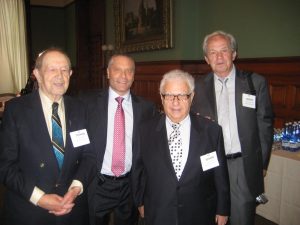I am no stranger to offensive comedy. In fact, I usually love it. But I watched something this week on Netflix that made me queasy.
Jeff Ross is a Jewish comic from L.A., who is called, with some affection, the “Roastmaster General.” In a comedy roast, a celebrity is made fun of, in a brutal way, by a series of comedians, before getting a chance to turn the tables on his attackers. The practice originated at the Friar’s Club in New York, with comics such as Don Rickles, Shecky Green, Red Buttons and Rodney Dangerfield.
The material is filthy and mean, and when cable TV evolved, it was a perfect show for the uncensored platform. Ross and his friends roasted Chevy Chase, Hugh Hefner, Charlie Sheen and many others, and the shows were big hits.
So I was excited to see Ross’ new concept on Netflix: five episodes of Historical Roasts, with famous people from history as the targets: Martin Luther King, Cleopatra, Muhammad Ali, Freddie Mercury and – Anne Frank?
First of all, the words “Anne Frank” and “roast” do not belong in the same sentence. It is egregiously upsetting to many people. And of all people, why pick on Anne Frank? Looking at the twitterverse, it seems a lot of people are asking the same question.
But it’s not just Anne Frank herself (played by comic Rachel Feinstein) being lampooned in that episode, it’s also former U.S. president Franklin D. Roosevelt (played by Jon Lovitz), who is skewered for limiting Jewish immigration and his refusal to bomb the railway tracks. Hitler (played by Gilbert Gottfried) also shows up and makes a fool of himself. As you can tell, a lot of Jewish performers were involved in this exercise in tastelessness. And as much as Ross intones that the Holocaust can never be allowed to happen again, it only makes the show even more tone deaf.
The bigger question here is: can the Holocaust ever be used for humour?
I laughed harder than anybody at Mel Brooks’s The Producers, which made light of Hitler and Nazism. And I laughed gently at Life is Beautiful, in which Roberto Benigni tries to convince his young son that their concentration camp is the setting of an elaborate game.
But in The Producers, Hitler is the butt of the joke, and in Life is Beautiful, the joke is infused with tragic melancholy.
Anne Frank, however, was the victim. Why would Ross pick on the victim? Couldn’t it have been a roast of Hitler, and had Anne as one of his roasters? The show is taped in front of a live audience, and one can see their discomfort through much of it.
READ: CJN PODCAST: WINING ABOUT ANNE FRANK
It may not be impossible to use the Holocaust as a reference in a joke. On the last season of Saturday Night Live, host Larry David made a joke in his monologue about how sex dominates his thoughts so much that he would have been looking at girls, even in the lineup at Auschwitz. Outrage followed. But I remember thinking the joke was more about desire than the Holocaust. A black comic could do the same riff about his lust on the slave ship Amistad.
Ferne Pearlstein’s 2017 doc, The Last Laugh, tackled the subject by showing her grandmother, a survivor, some of the tasteless humour about Holocaust subjects. Bubbe Pearlstein watched material from Joan Rivers, Gottfried, Sarah Silverman and others, and generally concluded they were either harmless or actually acted as a kind of revenge against the evildoers. And it kept the memory of the Holocaust alive in its own odd way, which was Rivers’ defence of her Heidi Klum oven joke (I won’t repeat it here, but you can find it online).
But the gold standard on the subject can be found in a little-known book called Dead Funny by Rudolph Herzog, which was recently translated from the original German. The book is a history of humour in Nazi Germany and shows how the Germans closed down the cabarets, but only after the officers were revealed to be major patrons. The book shows how there was laughter even in the camps, and that those inmates who could rise to the occasion were much appreciated and revered.
It shows how important comedy can be in healing the human spirit, at least for a short while. And sometimes, even often in the history of our people, it may be all that we’ve got.
But I’ll let Jeffrey Ross have the last word here, because in the midst of his crass provocation, he had this to say:
“Us Jews always get through the pain with laughter. And if we don’t laugh, we cry.”






